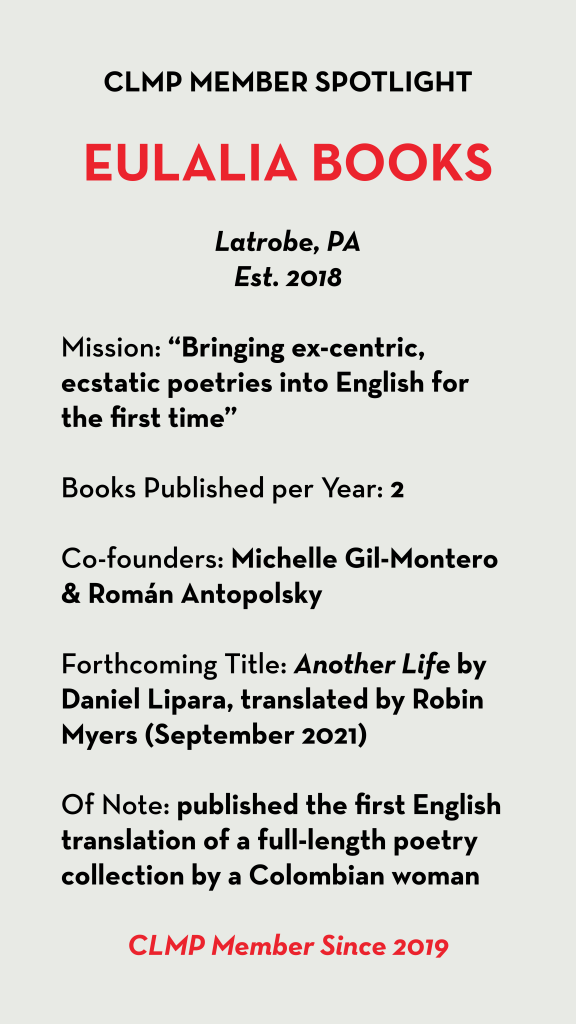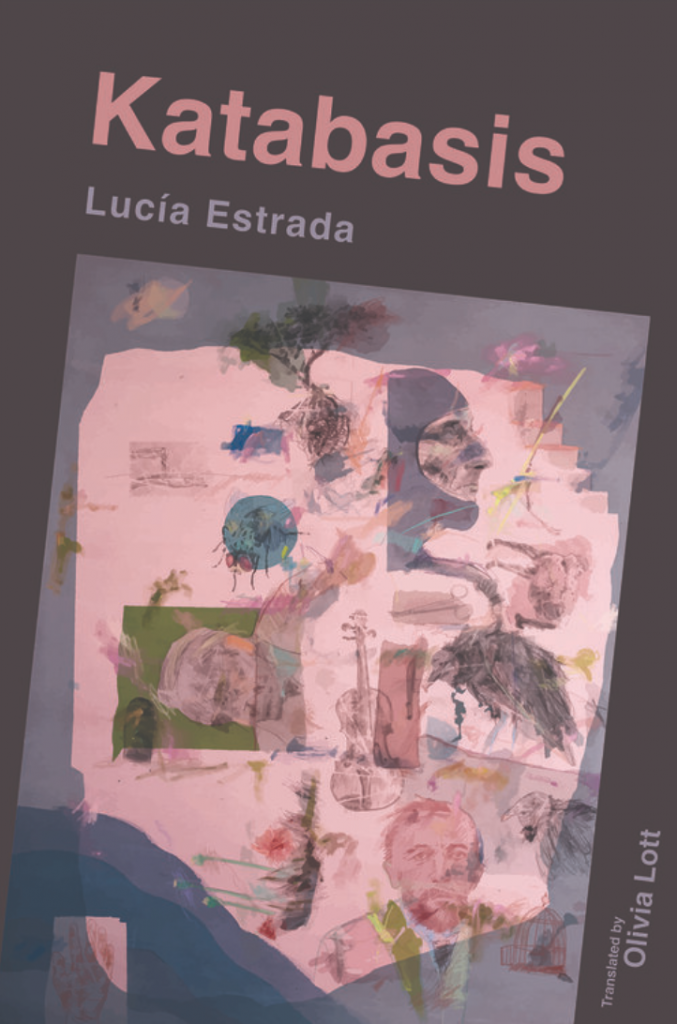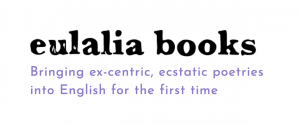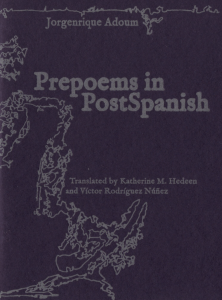We spoke with Michelle Gil-Montero, editor of Eulalia Books, in this installment of the CLMP Member Spotlight series.

What is the history behind Eulalia Books? When was it founded and what is its mission?
We were founded in 2018 and published our first title in 2019: a chapbook by Jorgenrique Adoum, a twentieth-century avant-garde Ecuadorian poet, translated by Katherine Hedeen. From the beginning, we wanted to set up an extreme constraint: to publish only Latin American poets whose work has not yet appeared in a full-length English translation. As translators ourselves, Román Antopolsky and I had a hunch that it would feel liberating, rather than limiting. We are often frustrated by how some of the best writing gets overlooked because it doesn’t conform to existing notions of a particular national poetry, or because it’s linguistically difficult or seems to lack context in English. So we committed to the “ex-centric and ecstatic,” the kind of Latin American poetry that translators (like us) take on as a labor of love and poetic necessity.
In 2020 Eulalia Books published Lucía Estrada’s Katabasis, translated by Olivia Lott, which is the first full-length poetry collection by a Colombian woman to be translated into English. Can you tell us more about this collection and its significance?
 Katabasis met with a lot of excitement from readers, because, while correcting such a glaring blind spot in translation, it also resists assumptions about what a “first” book of “Colombian poetry” by a “woman” might look like. Readers expecting a window on a world (say, on the experience of decades-long violence in Colombia) end up encountering something much more profound, a window on an underworld. Estrada’s poetry probes the shadowy, uncanny landscape of the psyche. Olivia Lott’s own poetic urgency is legible on every page of the translation, and her translator’s note contextualizes the book and discusses the kind of (“katabatic”) translation that it demanded. It is a book of stunning prose poetry that, I know, will help direct more attention to Estrada’s work and the rich Colombian poetry scene.
Katabasis met with a lot of excitement from readers, because, while correcting such a glaring blind spot in translation, it also resists assumptions about what a “first” book of “Colombian poetry” by a “woman” might look like. Readers expecting a window on a world (say, on the experience of decades-long violence in Colombia) end up encountering something much more profound, a window on an underworld. Estrada’s poetry probes the shadowy, uncanny landscape of the psyche. Olivia Lott’s own poetic urgency is legible on every page of the translation, and her translator’s note contextualizes the book and discusses the kind of (“katabatic”) translation that it demanded. It is a book of stunning prose poetry that, I know, will help direct more attention to Estrada’s work and the rich Colombian poetry scene.
Eulalia Books is also a teaching press and is staffed in part by faculty and students. What are some of the rewards and challenges of teaching small-press publishing?
 In my Small Press Publishing course, I teach undergraduates who, despite being avid consumers of books, have had limited exposure to small presses. The idea of the press as a catalyst for community in poetry, and for new impulses and concerns to gain force, is central in that class. College students read so many books, but they rarely have occasion to think critically about how those books came to be! It’s wonderful when students begin to explore what we mean by given notions like publication and even book. So, I would say that the most rewarding part is to see them thinking about books not just as commodities but as parts of a conversation. And, of course, as made things! They have fun dabbling in the material dimension of book-making—setting type, saddle-stitching chapbooks, etc. Not all students who take the class go on to intern with the press, but I hope they become better and broader readers.
In my Small Press Publishing course, I teach undergraduates who, despite being avid consumers of books, have had limited exposure to small presses. The idea of the press as a catalyst for community in poetry, and for new impulses and concerns to gain force, is central in that class. College students read so many books, but they rarely have occasion to think critically about how those books came to be! It’s wonderful when students begin to explore what we mean by given notions like publication and even book. So, I would say that the most rewarding part is to see them thinking about books not just as commodities but as parts of a conversation. And, of course, as made things! They have fun dabbling in the material dimension of book-making—setting type, saddle-stitching chapbooks, etc. Not all students who take the class go on to intern with the press, but I hope they become better and broader readers.
Eulalia Books celebrates its third anniversary in 2021. What are some of your hopes and goals for the coming years?
 So far we’ve published two full-length books per year, but we’ll be increasing that to four books in 2022. We are particularly excited to expand our Poetics of Translation series (which began in 2020 with Sleepless Nights Under Capitalism, a chapbook of Juan Gelman poems interwoven with commentary by translator Erín Moure). We aim to publish more indigenous Latin American and multilingual writing as well.
So far we’ve published two full-length books per year, but we’ll be increasing that to four books in 2022. We are particularly excited to expand our Poetics of Translation series (which began in 2020 with Sleepless Nights Under Capitalism, a chapbook of Juan Gelman poems interwoven with commentary by translator Erín Moure). We aim to publish more indigenous Latin American and multilingual writing as well.
What are some other translation-focused magazines and presses you admire?
Action Books, Coimpress, Veliz Books, Ugly Duckling, Circumference Books, Kenning Editions, Black Square Editions—presses that intermix North American writing in English and poetry in translation. We take inspiration from so many magazines—Caesura is one—and presses that bring disparate writing into provocative discussion.
